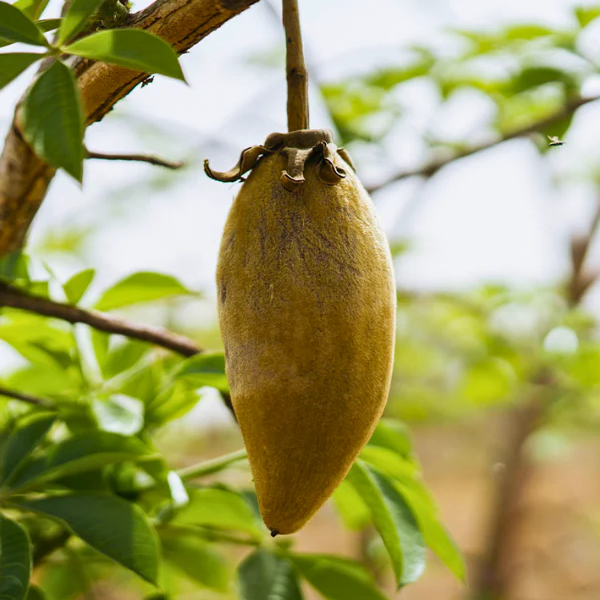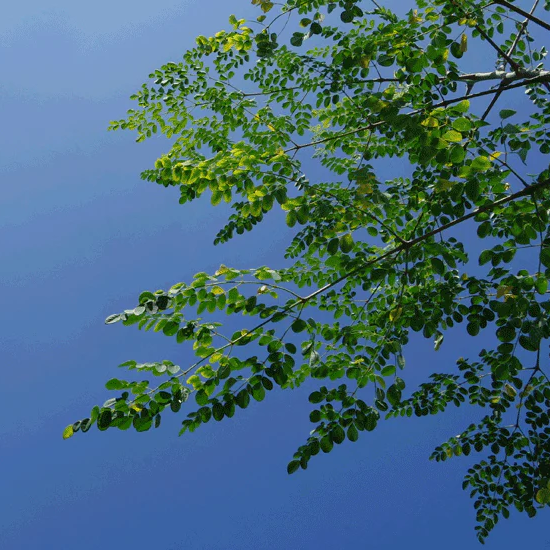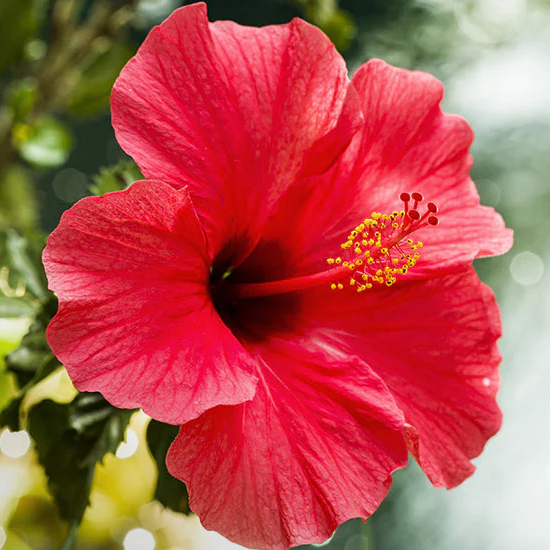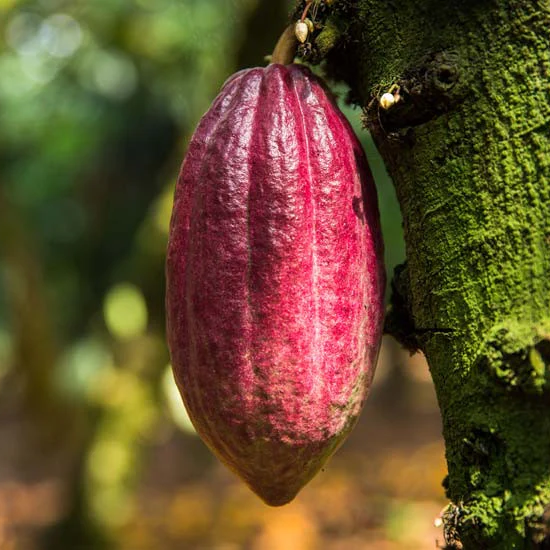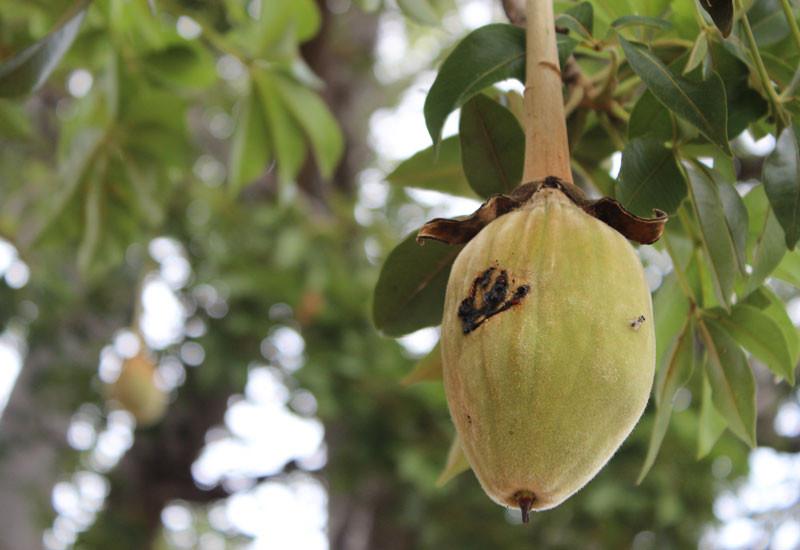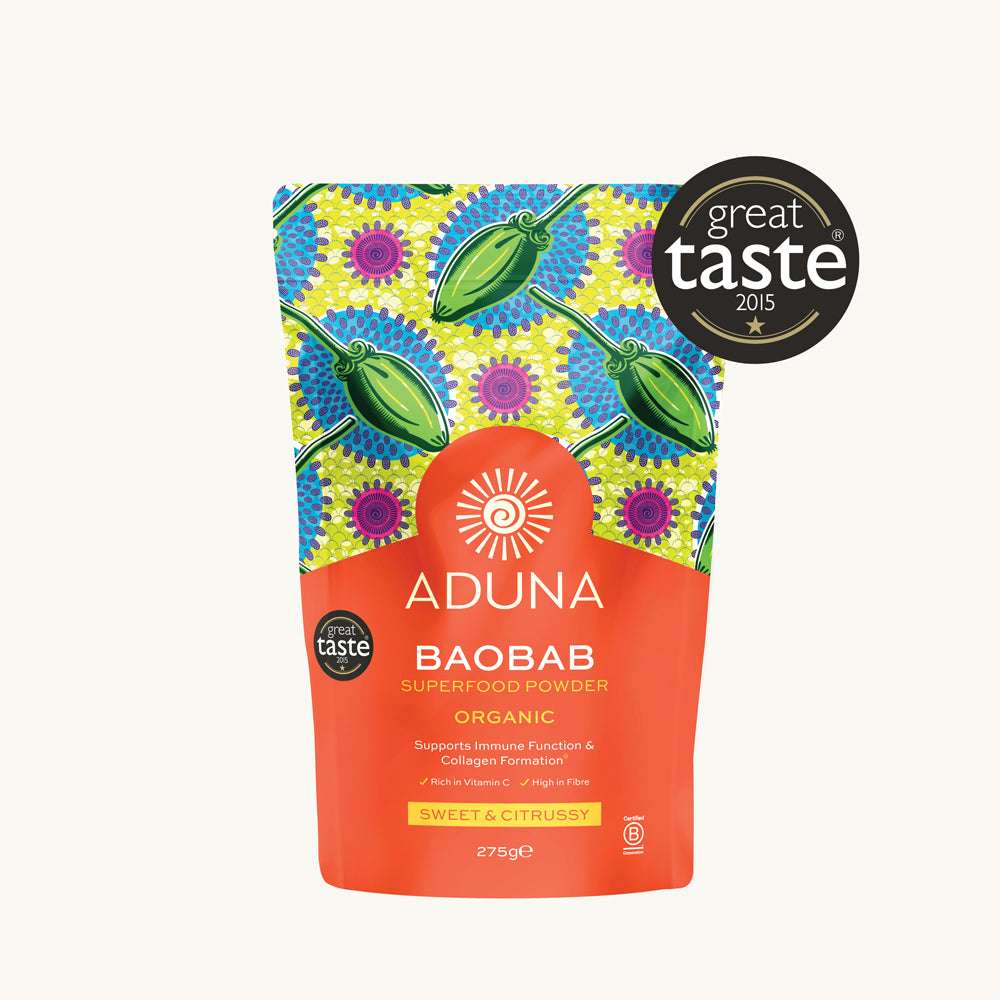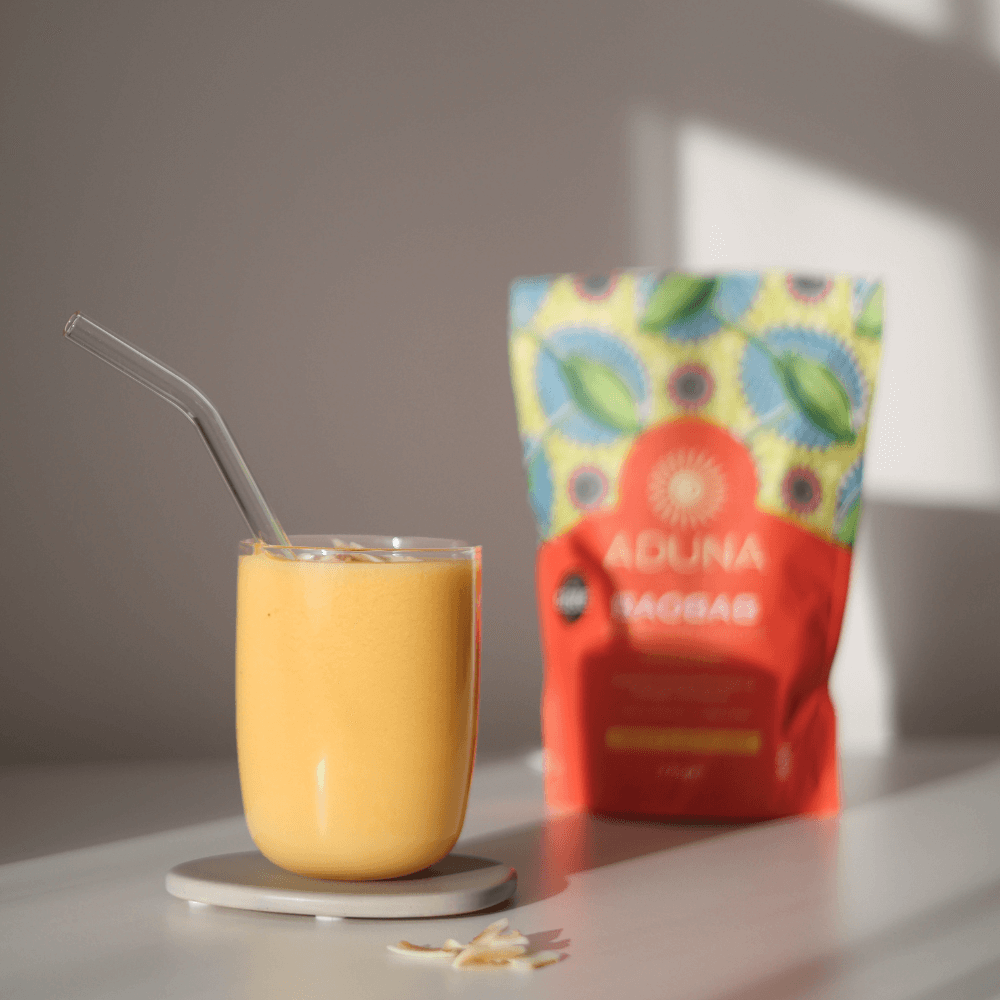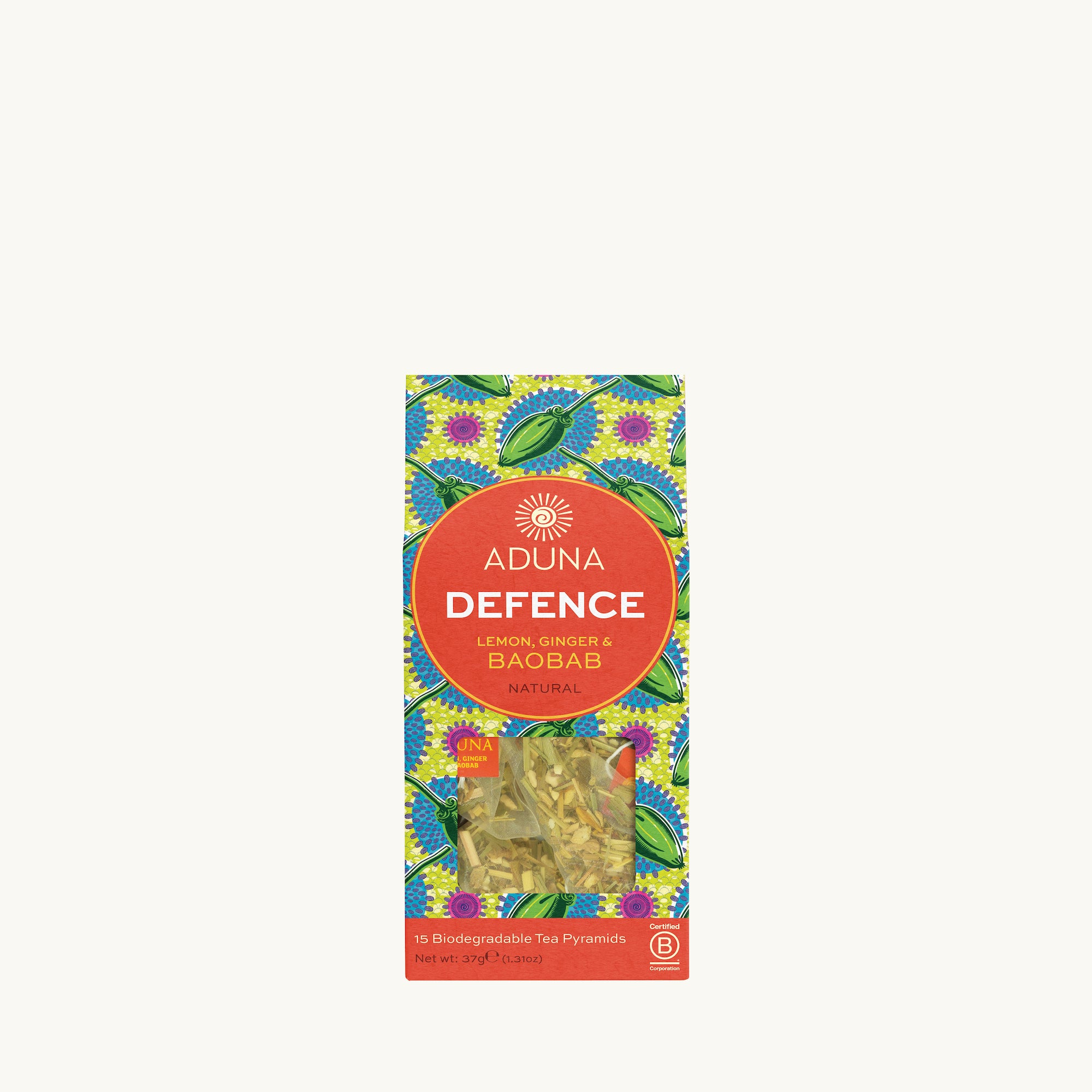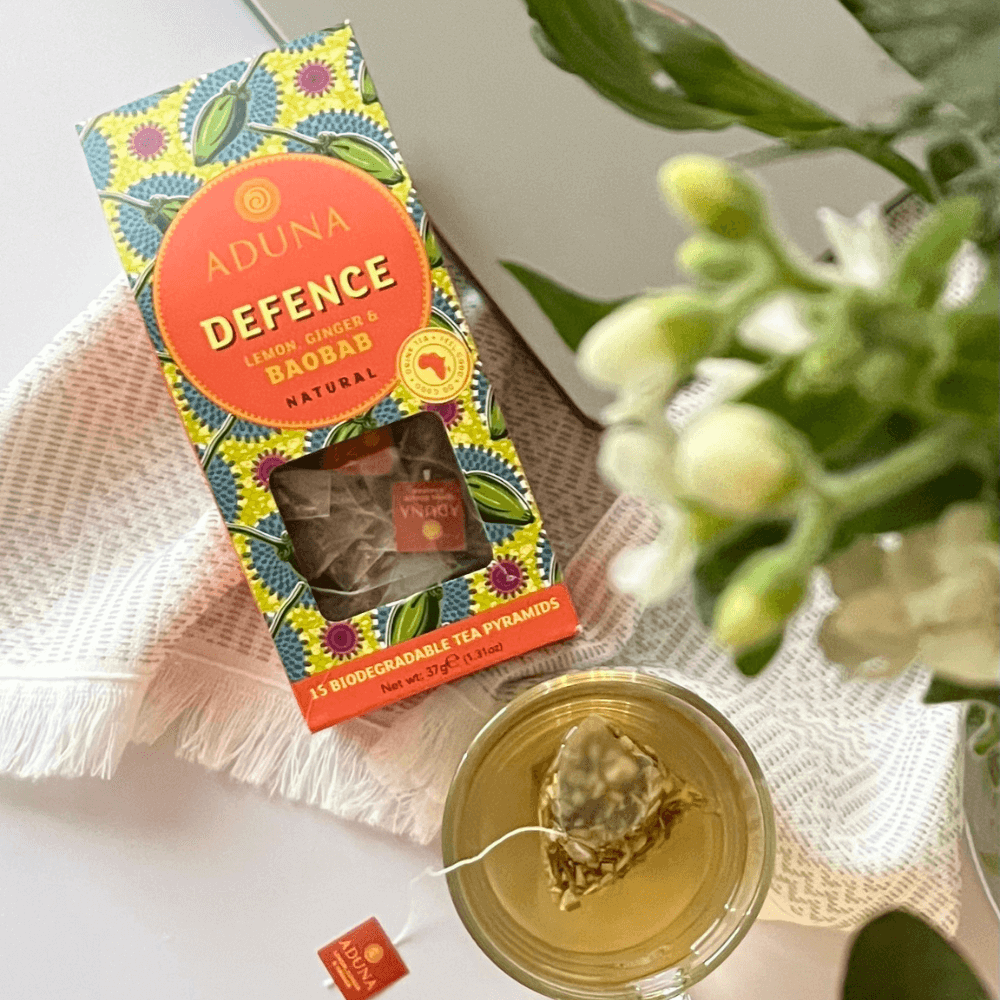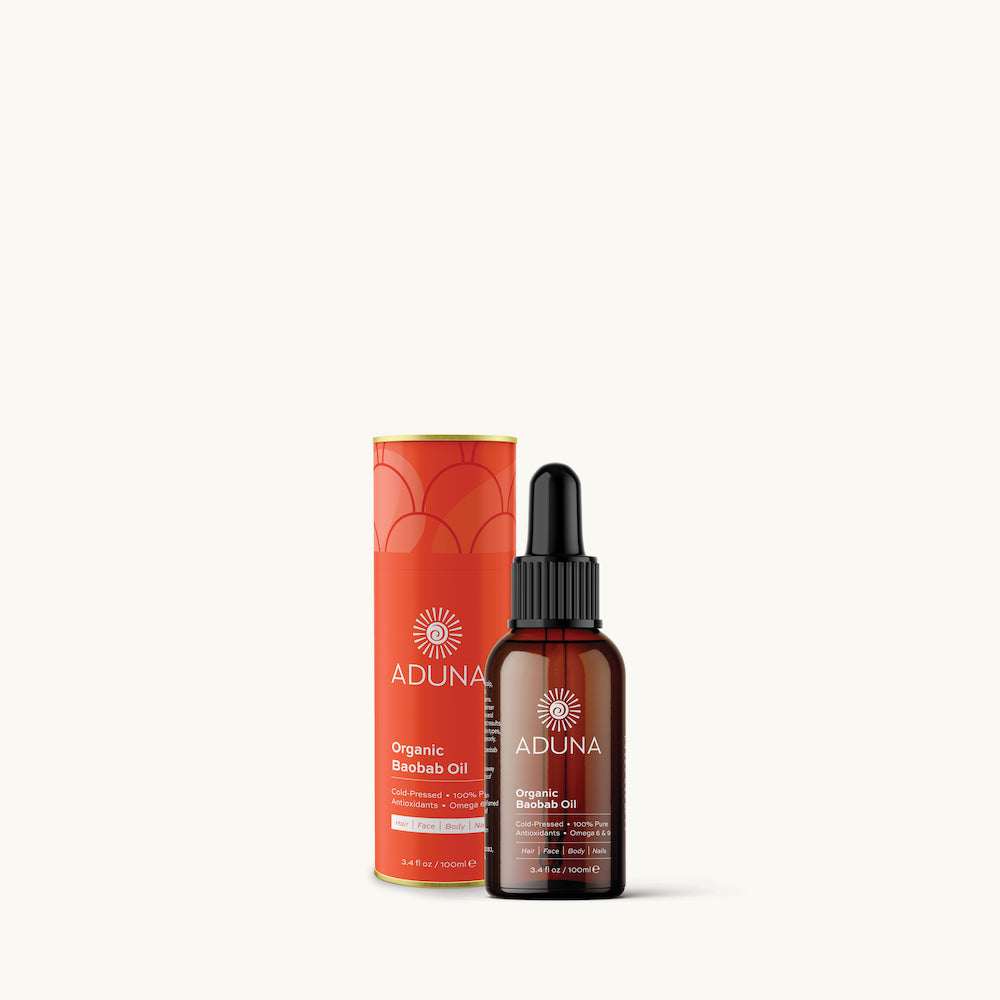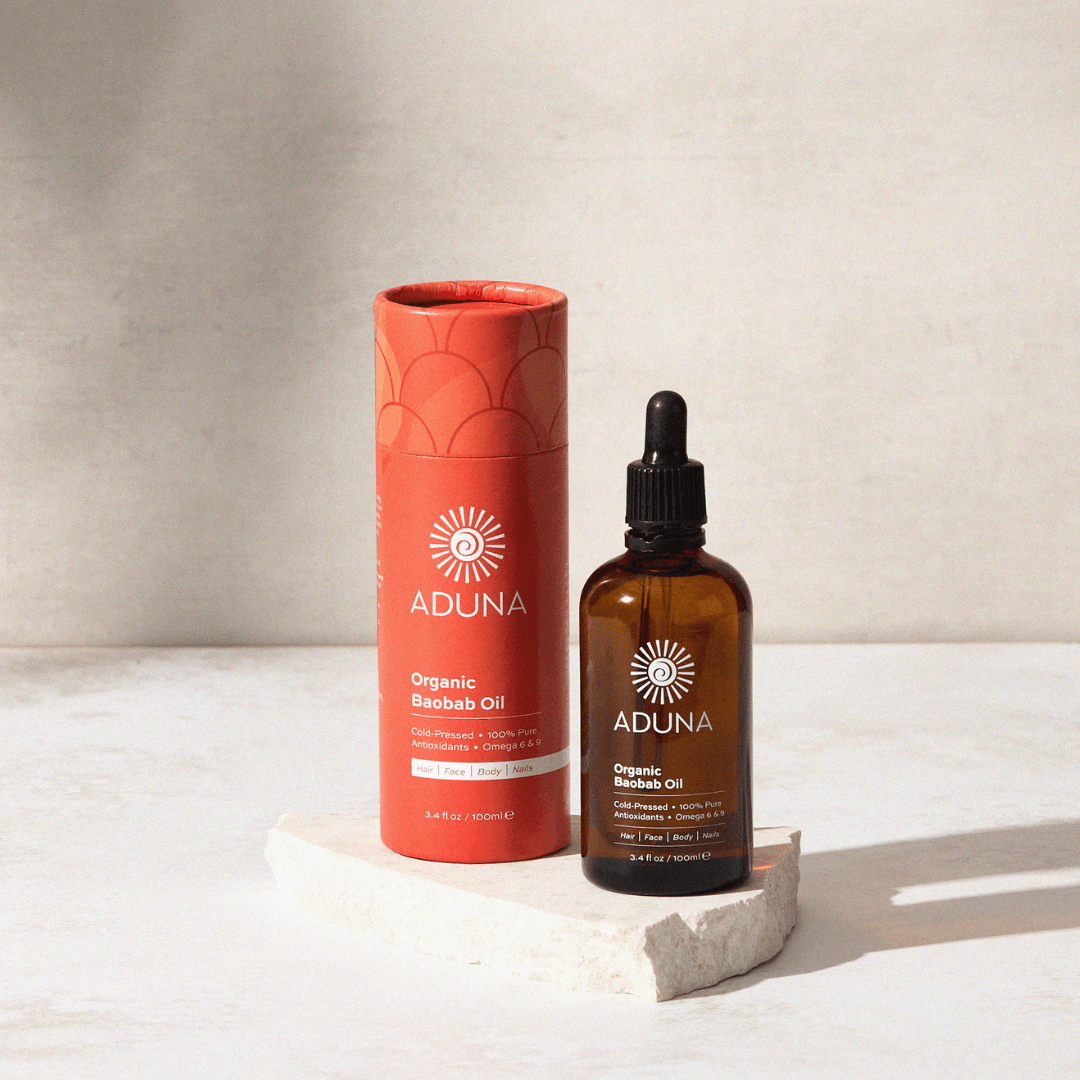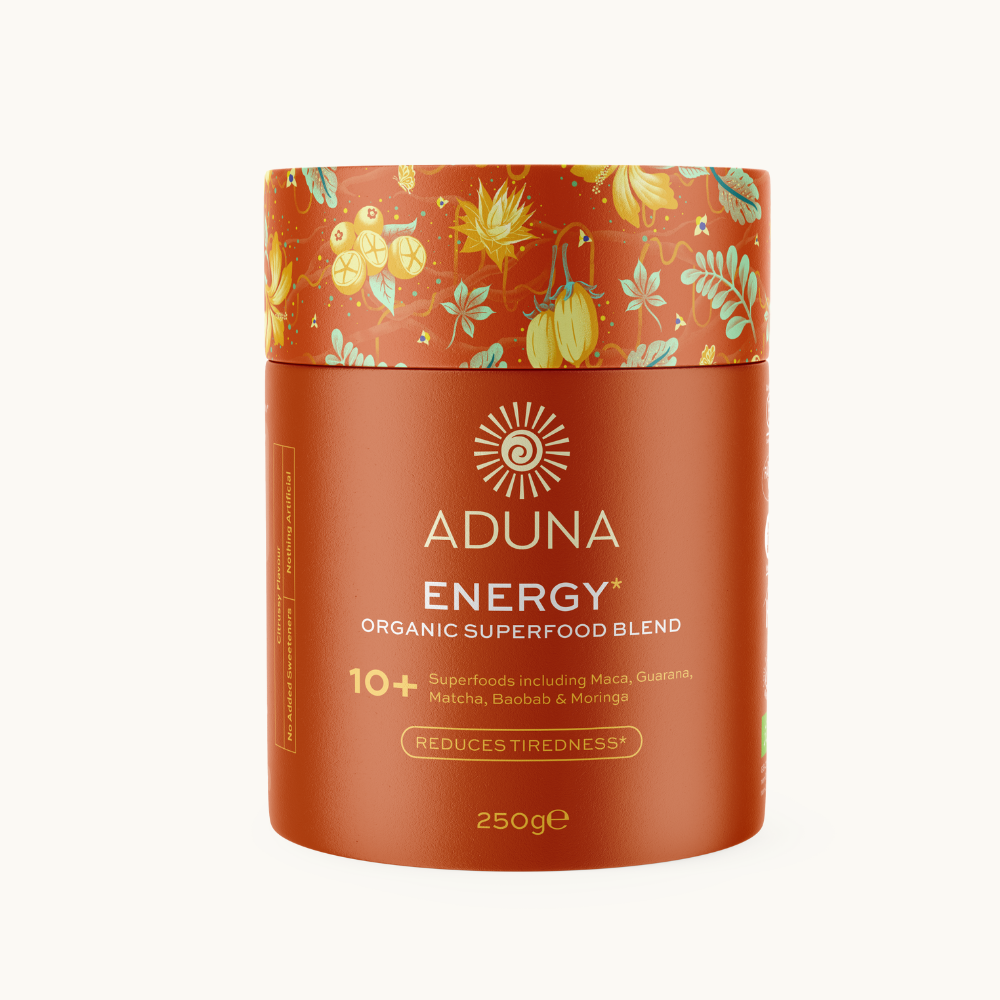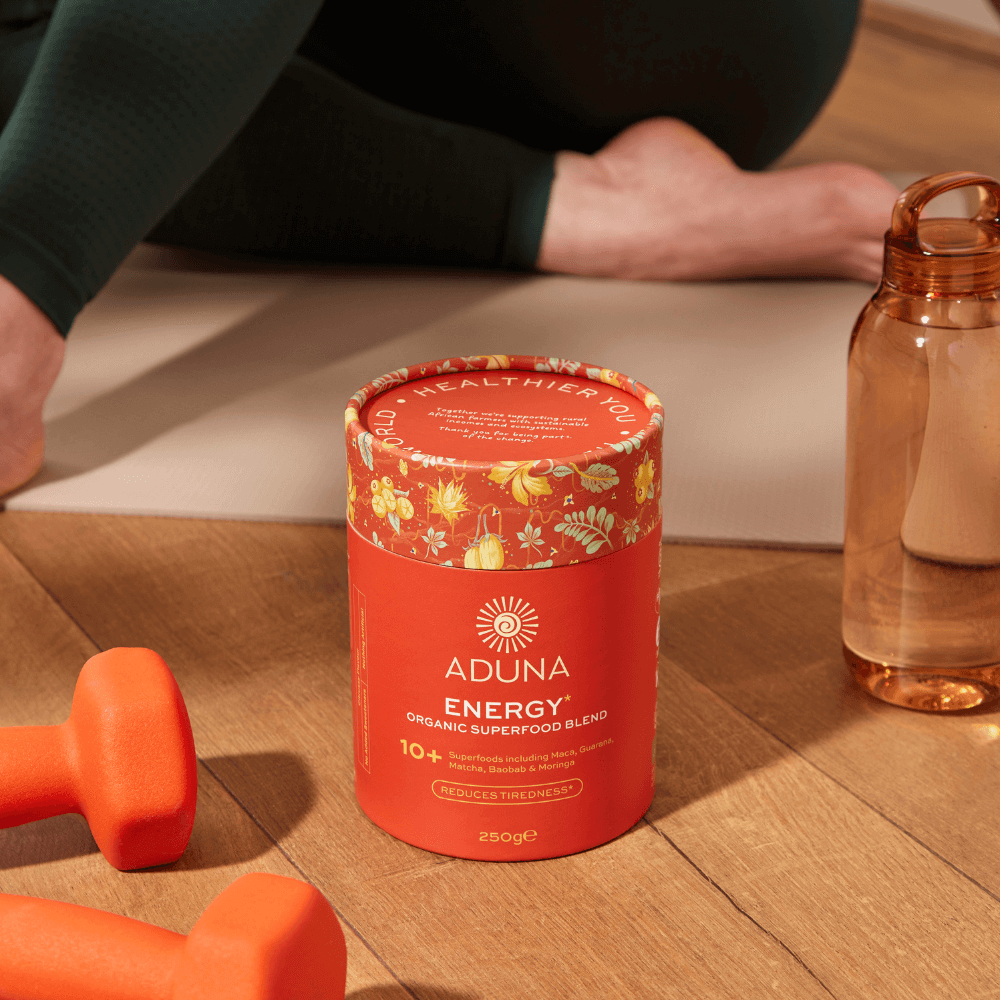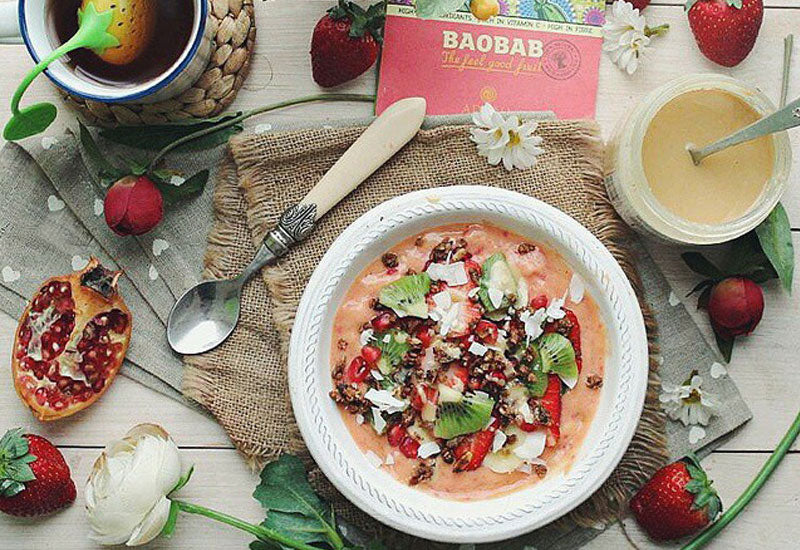Baobab fruit has been consumed in Africa since ancient times. The Hadza Tribe in Tanzania are some of the last remaining hunter-gatherers on the planet. They have probably the most ancient diet on earth - and baobab fruit is a key staple.
Baobab is the only fruit in the world that dehydrates while it is hanging on the branch. Its hard shell is cracked open to reveal pieces of dried fruit pulp which are crushed to form a sweet and citrussy powder. Baobab powder is rich in vitamin C (6x that of an orange) and has more antioxidants than any other whole fruit, supporting a wide range of health benefits from a strong immune system to energy release and healthy skin.
Baobab fruit pulp is extremely high in fibre (almost 50%) - two thirds of which is soluble. Soluble fibre is a prebiotic, helping stimulate the growth and activity of beneficial probiotic bacteria in the colon and supporting gut health.
It has been proven that the Hadzas have the best gut health on the planet. Could baobab be the reason why?
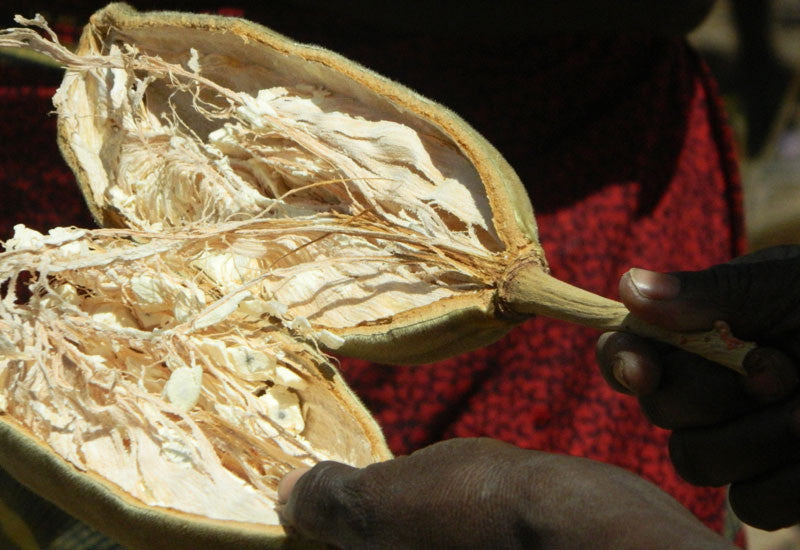
A cracked open baobab revealing the dried fruit pulp inside
The last true hunter gatherers
An indigenous ethnic group in northern Tanzania, the Hadzas are one of the last remaining communities to live and eat as we did over 10,000 years ago before our ancestors domesticated animals and plants. They gather edible plants and honey, hunt game and birds and move from place to place in search of food and water. Their diet is thought to reflect how humankind has eaten for 99% of time since the Homo species emerged 2 million years ago.
According to scientists, the Hadza have the most diverse gut bacteria of anyone anywhere in the world. Our gut microbiome (the community of bacteria that lives in our guts) is essential for our overall wellbeing, affecting everything from our metabolism to our immune system and even our mental health.
The Hadza have 40% more diverse gut microbiomes than the average Westerner and this could be the reason why they lack many common western ailments including asthma and diabetes.
Baobab fruit: a Hadza staple
The Hadza diet consists of five core categories: edible plants, wild game, honey, tubers and baobab fruit, which is one of their key staples.
They crush dry baobab fruit pulp and mix it with water to make a citrussy milkshake which they drink for breakfast. They also dry the seeds and grind them into a flour, which they eat dry or with a little water. The baobab provides an excellent source of energy, vitamin C and fibre.
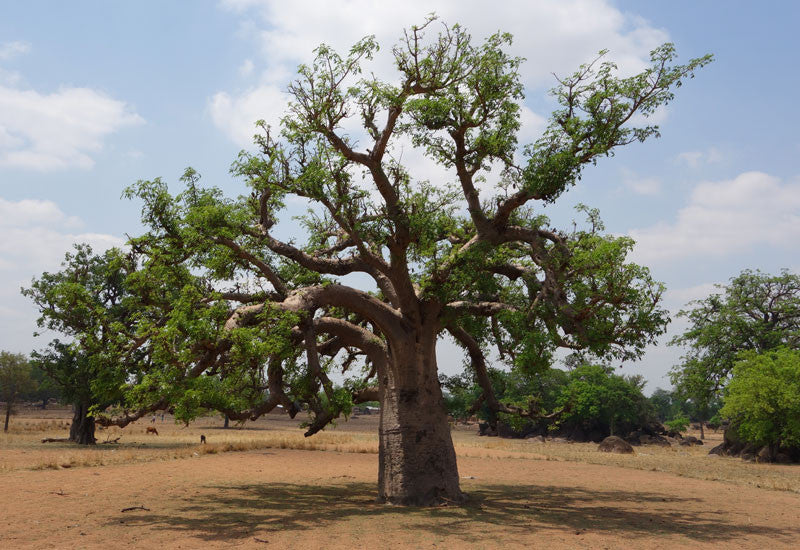
The African Baobab Tree, aka the 'Tree of Life'
Baobab trees play an important role in Hadza culture. They believe that man arrived on earth by climbing down a giant baobab tree and that the spirits of their tribal ancestors rest in the trees. Some women to this day give birth inside hollow baobab trees - a place of safety, privacy and spiritual sanctity. They make rattles for their babies out of the fruit pods and games from the bark. They also drink rain water that collects in the natural hollows of the trunk.
A scientist from Kings College London, Tim Spector, went to live with the Hadzas, following their diet and lifestyle exactly. Listen to this 2 minute clip from BBC World Service Radio of Tim and his colleague Jeff Leach drinking "baobab soup". In just three days of eating baobab, porcupine meat, honey and berries he gained over 20% more microbe types in his gut. Spector told The Times newspaper in the UK: "I’ve taken 50 samples or so in the past couple of years, and it doesn’t go up or down much,” he explained. “I went to India, and it didn’t change anything like this.”
It is well established that the more diverse a community of microbes in our guts, the lower the risk of disease so the inclusion of baobab fruit in their diet, as well as the absence of processed foods and chemicals, could explain why the Hadzas enjoy such good health.
According to Spector, we can all learn a thing or two from the Hazdas. In order to improve our health, we need to improve the diversity of our gut microbiomes. Effectively, we need to “rewild” our gut bacteria and eat like hunter-gatherers - making things like baobab fruit a regular part of our diet as it was for our ancestors thousands of years ago.
Try Baobab Powder today
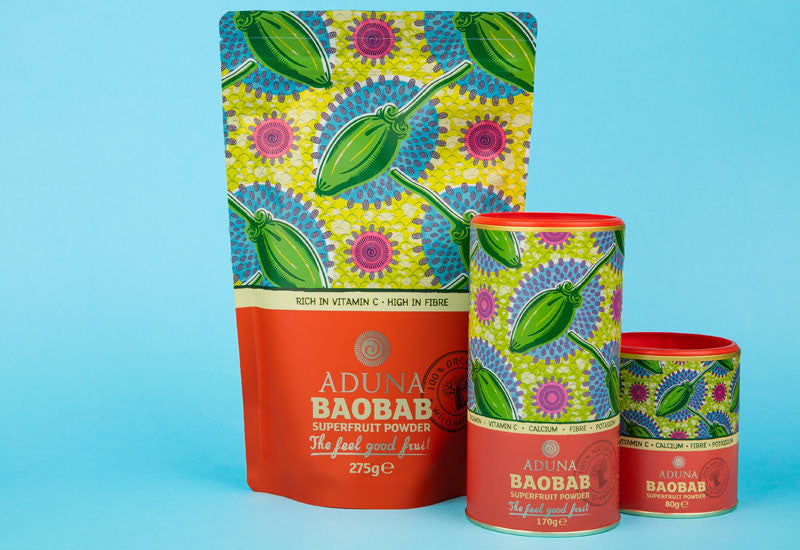
Aduna's Baobab Superfruit Powder Range
Nutritional Therapist and author of best-selling gut health guide Be Good To Your Gut Eve Kalinik says:
"The Hadza tribe are considered to have one of the most diverse and indeed most ‘sought after’ microbiomes that one could possibly hope to achieve and this is largely down to their diet that alongside a wide range of plants and tubers, wild meats, honey, crucially includes a morning baobab drink. This is because the baobab fruit is a rich source of prebiotic fibre that helps to promote the growth of bacteria in the gut. We might not all be able to travel to the other side of the world and live in indigenous tribes but we can add a generous spoonful to our morning porridge or into a smoothie to reap the benefits."
Aduna Baobab Powder is 100% natural, organic-certified and the highest possible quality. It is also the only baobab powder to have won a Great Taste award for its delicious sweet, citrussy flavour. Visit our store locator to see where you can buy baobab powder near you or check out our online shop.
As Aduna is a social business, every purchase directly supports the creation of sustainable income streams for rural African households. You can receive 15% off your first order by signing up to our newsletter (scroll to the bottom of the page to subscribe!).
Sources:
"The Baobabs: Pachycauls of Africa, Madagascar and Australia", G.E. Wickens, Springer Science & Business Media, 2008
Tim Spector is Professor of Genetic Epidemiology at Kings College London and author of The Diet Myth

